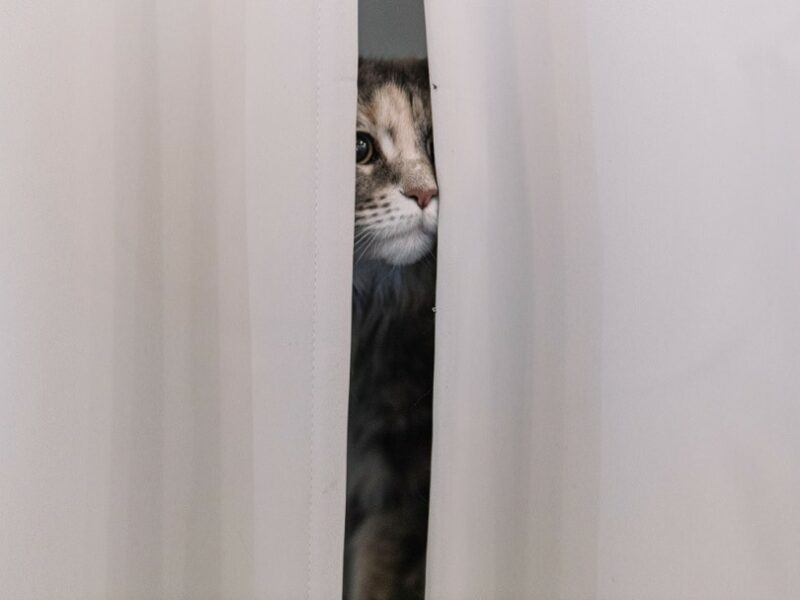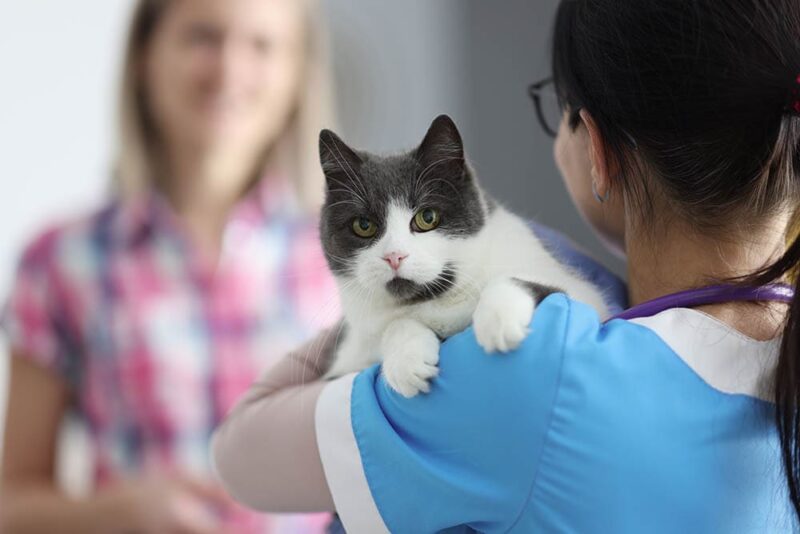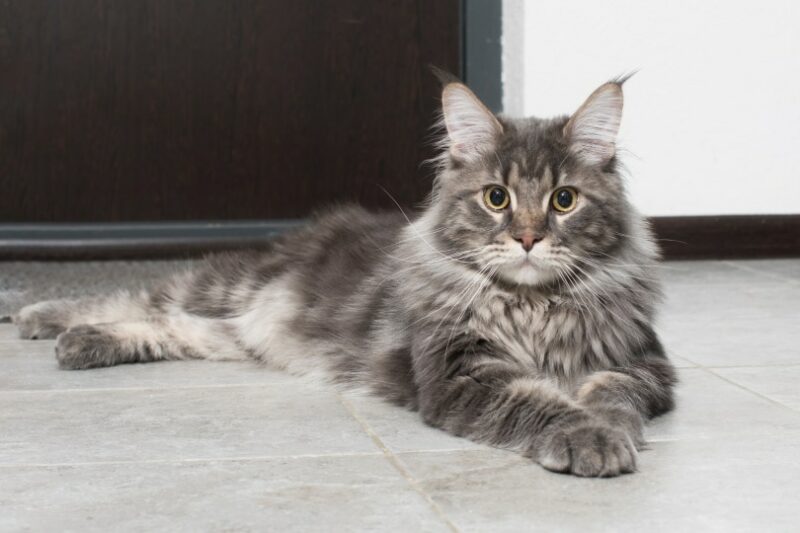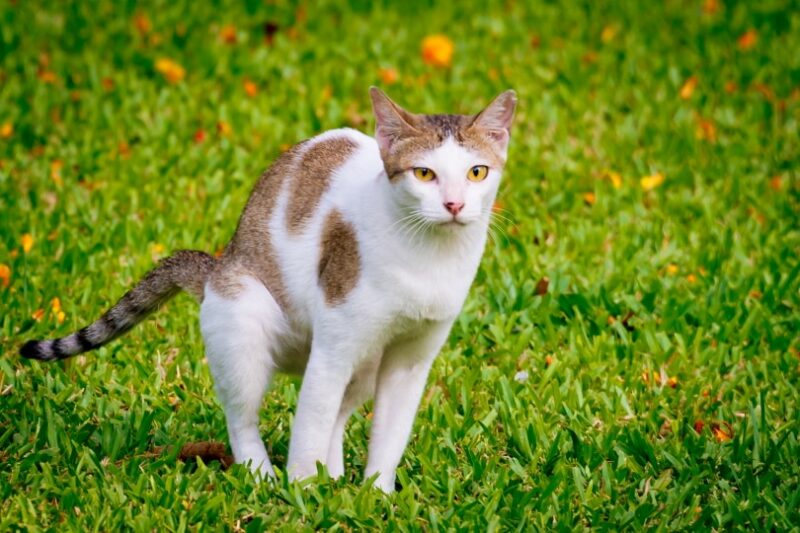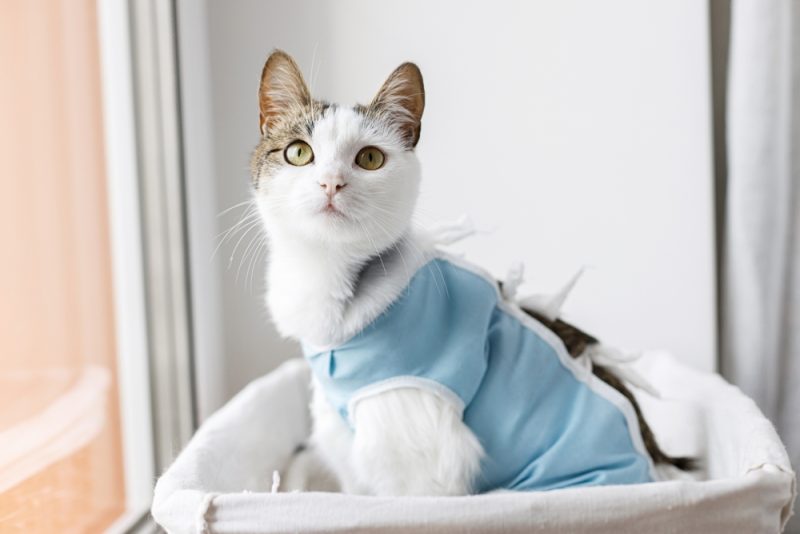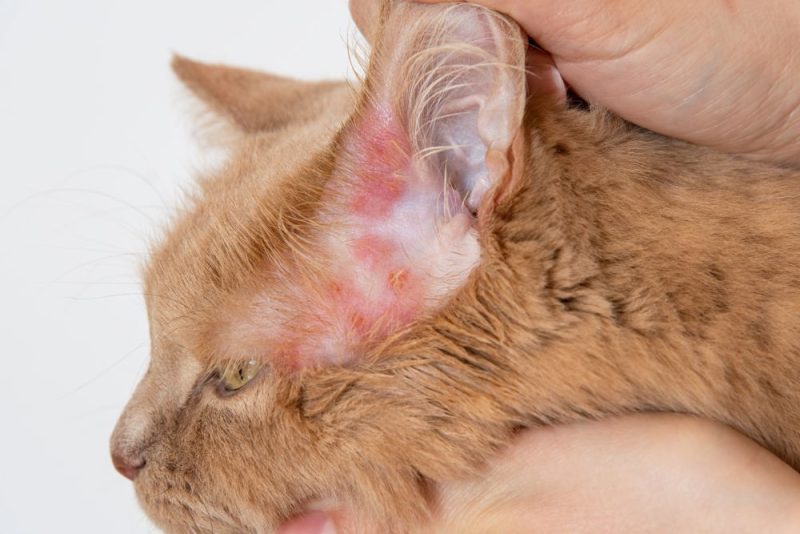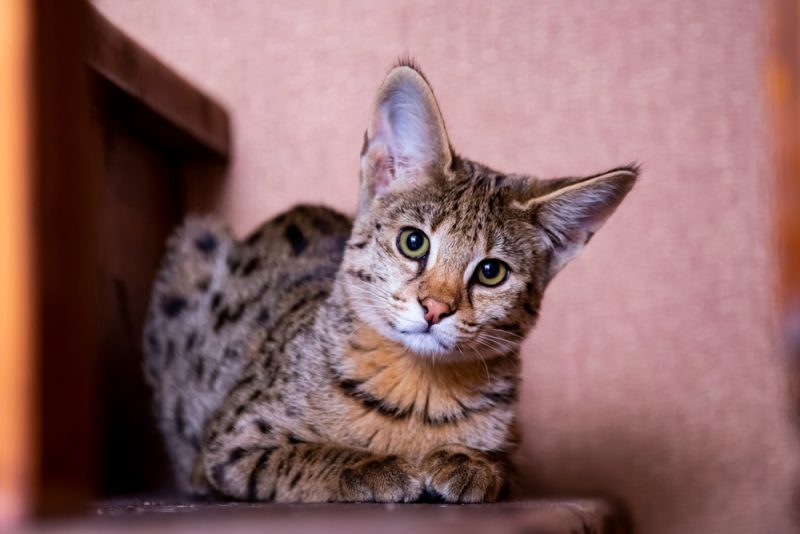Cats are sometimes inaccurately described as unemotional, unsympathetic, and supernaturally aloof. You may have heard catchy expressions like “a dog is man’s best friend, but a cat is man’s best observer.” However, over the years, countless research has shown that felines are emotional beings that react in different ways to their environments than canines and other pets.
Understanding a feline’s behavior is complex. There’s still an element of mystery surrounding the curious animals. However, as a pet parent, you can help your cat overcome their fears regarding strangers and unannounced visits. If your cat runs away at the sight of a new face and that worries you, then your priority should be determining the cause of the behavior to ascertain whether it’s something you can help your cat with.

The 5 Reasons Your Cat Is Scared of Strangers:
1. Lack of Early Socialization
Whether you adopted a kitten or a full-grown feline, the animal’s behavior is related to their upbringing. Like most creatures, cats learn by watching their parents. Compared to dogs, cats have a briefer socialization period from 3 to around 9 weeks old. Kittens are also very impressionable from their mothers; if their mothers are timid around people, they too will likely be very shy around people.
A cat that’s older than 9 weeks can also be socialized. However, the degree of success varies with such endeavors. There’s also a degree of ethical conundrum regarding attempting to socialize an older cat. Though many rescuers often think that it might be beneficial for the cat, others argue that an older cat might be incredibly stressed if forced to interact with people against their will.
Young cats introduced to children, neighbors, car rides, and loud noises are less likely to fear them as adults. Exposing your kitten to multiple stimuli can help them develop into a more sociable adult cat. If you have an adult that’s skittish of strangers, you can encourage them to warm up to other people in small increments, but it will probably take more time for an adult to adapt than a kitten.
2. Past Trauma
When a cat fears a person or loud noise, they may have had a previous traumatic experience that caused the behavior. For instance, a cat may have been hit, yelled at, or punished by a former owner. Though such cats may warm up to certain individuals, they may still have a tough time socializing with strangers.
When someone visits the cat’s home out of the blue, the cat may associate the event with fear and run the other way.
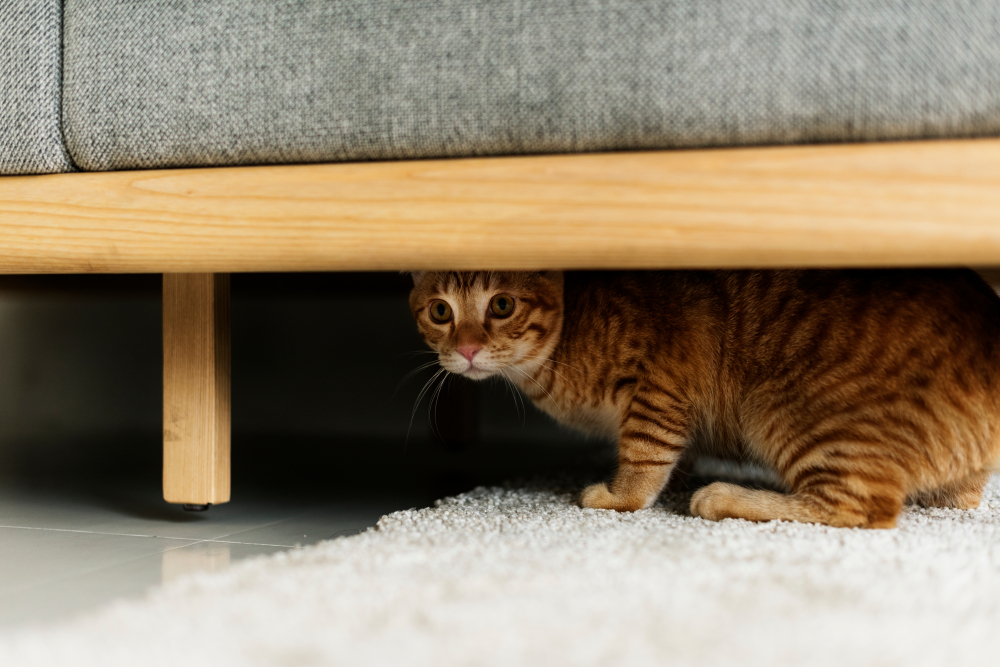
Cats that have been exposed to trauma in the past require professional training and intervention from a cat behavior specialist. Their rehabilitation with people (if possible) will involve a program tailored to their specific needs, which factors in the extent of their fear.
3. Environmental Stress
Past trauma or socialization issues may not be the reasons for your cat’s behavior. If you recently moved into a new house, your cat may take several days or weeks to get used to the new environment. Until your cat feels safe in its home, they may react with fear when a stranger enters.
Cats need to explore and sniff around their new habitat. Until they know that every square inch is safe, they can experience anxiety when additional stimuli like a loud stranger disrupt the process.
Give your cat time to accept the new home, and watch your cat when they pick a favorite spot to hide. By creating a safe zone for your pet near the hiding spot, you provide a comfortable area where they can relax and avoid frightening encounters.
You can set up a cozy room with toys, water, a scratching post, litter boxes, and their favorite bed. Allow your cat to slowly get acclimated to their new environment at their own pace. A cat that’s familiar with their house will likely be less threatened by a stranger’s approach.
4. Other Pets
If visitors in your house bring along their own pets, your cat might likely refuse to interact with them. At other times, when your feline feels threatened by the new animal, they may resort to attacking the new animal and may even turn aggressive toward you. This form of aggression is also known as redirected aggression.

Cats are instinctively territorial, and it’s unrealistic to expect them to cooperate with strange pets in their territory. Though some cats may be incredibly friendly and outgoing, the fact is that whenever two strange animals meet, the results can be unpredictable, as both of them do have a degree of autonomy over their actions. Therefore, it’s best to ask people to not bring pets to your house.
5. Medical Issues
If your cat hides or displays aggression to strangers, the cause may be related to an illness. A veterinarian can determine the cause and provide treatment. In addition, you should avoid treating your pet with over-the-counter medications without consulting a veterinarian .
If you suspect that your cat is avoiding interacting with strangers (or you) due to the pain associated with illness, they need to be looked over by a veterinarian.
If you need to speak with a vet but can't get to one, head over to PangoVet. It's an online service where you can talk to a vet online and get the advice you need for your pet — all at an affordable price!

Additional Tips for Socializing Your Cat
We discussed how you can slowly convince your cat to accept strangers, but here are some additional suggestions to help you manage the process.
- Avoid harsh corrections: When your cat escapes to hide from someone, let them find peace in their hiding spot. Yelling at them and calling for them to meet your friends will only increase the fear.
- Remove noisy distractions: Before company visits, turn down the stereo or television and eliminate as much background noise as possible. Visitors will add to the noise when they enter the house, and it may be too much for the cat to handle.
- Instruct visitors to refrain from antagonizing the animal: Everyone has an irritating friend who enjoys teasing pets, but you can keep problematic humans from chasing after the cat when they run. Even if the person were joking, the cat would not interpret the action as humorous.
- Be patient: Socialization is a slow process, especially for newly adopted adult cats, and you cannot expect the cat to warm up to strangers quickly. By providing rewards when the feline remains calm and slowly moving the visitor closer, your cat will gradually become more comfortable around new faces.
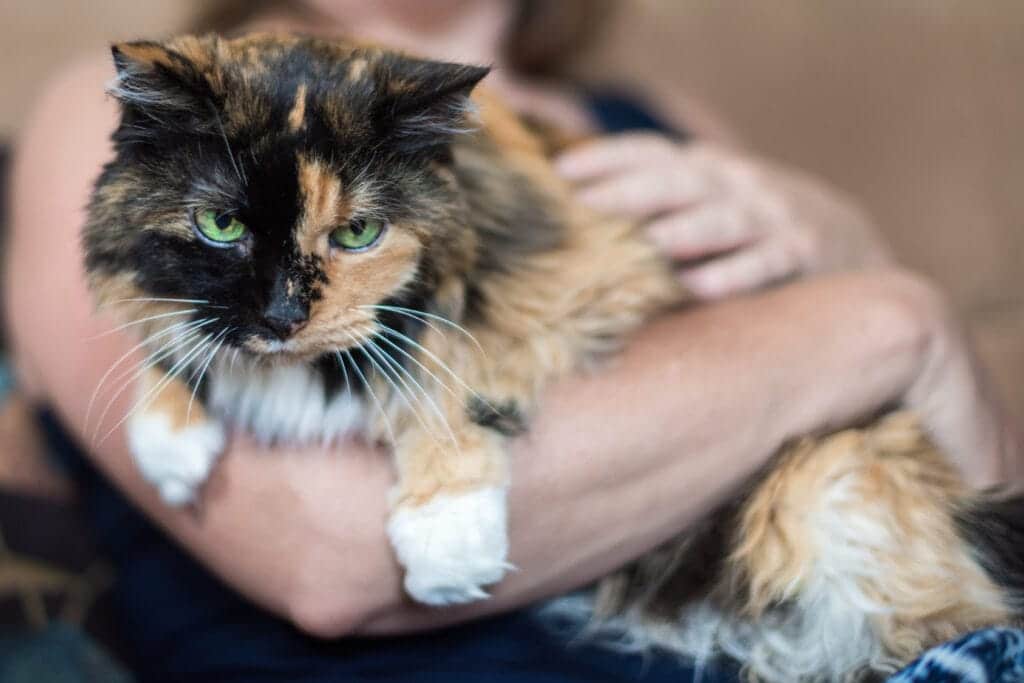

Final Thoughts
Cat behavior is mysterious to many, but we know a little more, thanks to research, about why felines run for shelter when they feel threatened.
Hiding from strangers is often instinctual for cats, but training cats to regard strangers as friends rather than enemies takes time. After identifying the origin of the distress, you can, at times, work with your cat and friends to make subsequent visits less traumatizing.
Featured Image: llaszlo, Shutterstock
